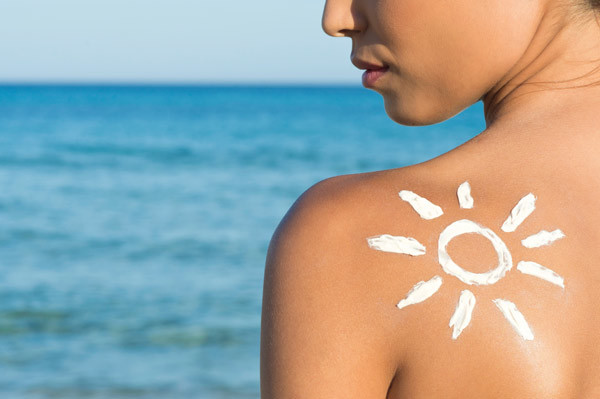
Doctors rarely talk to patients about using sunscreen, even when patients have a history of skin cancer, according to surveys of U.S. physicians over two decades.
Despite professional guidelines encouraging doctors to educate their patients about sun protection, in more than 18 billion patient visits from 1989 to 2010, sunscreen was mentioned less than one percent of the time.
Even dermatologists managed to mention sunscreen in less than two percent of visits, researchers found.
“The rate of discussing sunscreen at visits, especially for high-risk patients with cancer or pre-cancerous lesions, was lower than we would have expected,” said one of the study’s authors, Scott Davis, of the dermatology department at Wake Forest School of Medicine in Winston-Salem, North Carolina.
The survey data may not capture all mentions of sunscreen with complete accuracy, but that does not change the conclusion that frequency is much too low, Davis told Reuters Health.
Failing to mention sunscreen often enough is contributing to excessive unprotected sun exposure, especially for children, that will lead to skin cancer later in life, he said.
Davis and his co-authors examined data from an ongoing annual government survey that asks randomly selected doctors representative of their areas to record their patient interactions in detail for one week.
Over the two decades of the survey, there were about 18.3 billion patient visits to outpatient physician offices, and based on doctors’ survey responses, sunscreen came up at less than 13 million of those visits, which is 0.07 percent.
When visits specifically concerned skin disease, doctors still mentioned sunscreen less than one percent of the time, according to the results published in JAMA Dermatology.
Dermatologists talked about sunscreen more than any other specialty, at 1.6 percent of all visits and 11.2 percent of visits involving a patient with current or past skin cancer.
“I don’t think the results are surprising, at least not for someone who is familiar with what research has said about skin cancer counseling practices,” said Dr. Jennifer S. Lin, who studies evidence-based healthcare decision making at The Center for Health Research of Kaiser Permanente Northwest in Portland, Oregon.
“It is certainly disappointing,” said Lin, who has conducted reviews to support the U.S. Preventive Services Task Force for the past seven years, but is not herself part of the USPSTF.
In the study, Davis and his coauthors found that doctors mentioned sunscreen most often to white patients, and to those in their 80s, but least often during visits by children.
Evidence supports UV and sun protection counseling to prevent skin cancer, especially for kids and teens, so extremely low counseling for those groups is “incredibly problematic,” Lin said.
But she cautions that sunscreen is only one part, and not the most important part, of UV protection, which includes avoiding midday sun, wearing appropriate clothing and avoiding tanning beds.
“My belief as a primary care doctor, not based on my research, is that our health system does not value counseling or patient education as much as it does procedures, testing, medications, etcetera,” Lin said.
Even for patients who already know about sunscreen, discussing it can help, Davis said.
As with smoking and unhealthy eating, most people are aware of the risks, but bringing it up during an office visit shows the patient that the doctor is concerned and wants to help change the behavior, he said.
The American Academy of Pediatrics recommends bringing up sun protection at annual checkups, Davis said.
“The fact that it was recommended least frequently to children is very concerning, since children tend to get the most sun exposure, and may develop lifelong habits of poor sun protection,” Davis said. “This may be where physicians have the greatest opportunity to fight the ongoing, growing epidemic of skin cancer.”
Skin cancer continues to be the most common form of cancer in the U.S., diagnosed in more than 60,000 people yearly, according to the Centers for Disease Control and Prevention.
Patients may need to take the initiative and bring up sun protection themselves if they have questions, he said.
“Physicians are pressed for time and feel they cannot take the extra time needed for discussion of preventive care topics,” Davis said.
“But the main thing may be that physicians just aren’t thinking of it. This research may make health care providers more aware of the need to encourage commonsense sun protection, especially for younger patients,” he said.
Source: zee news





